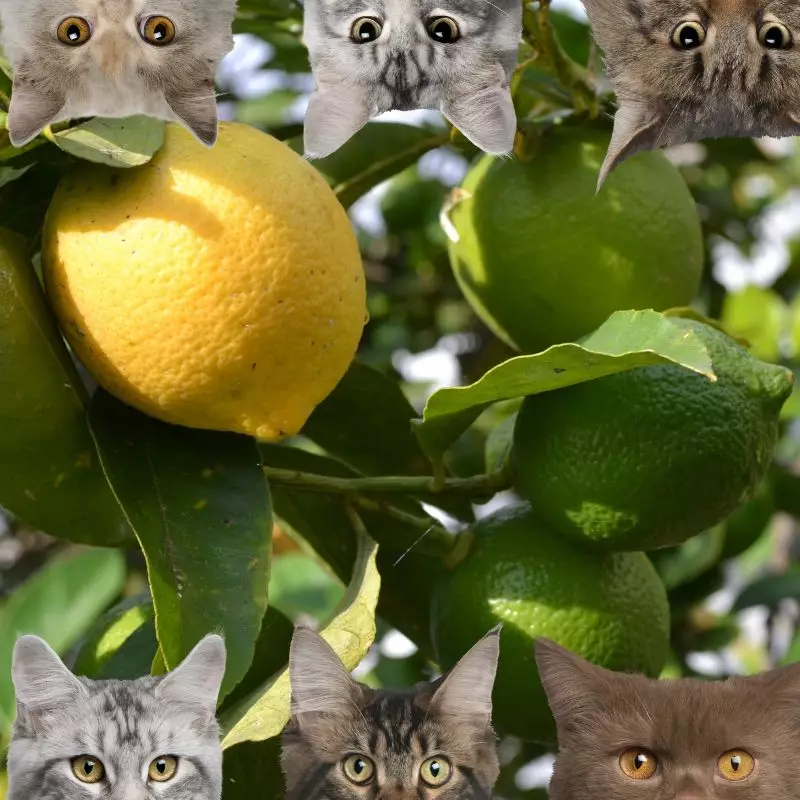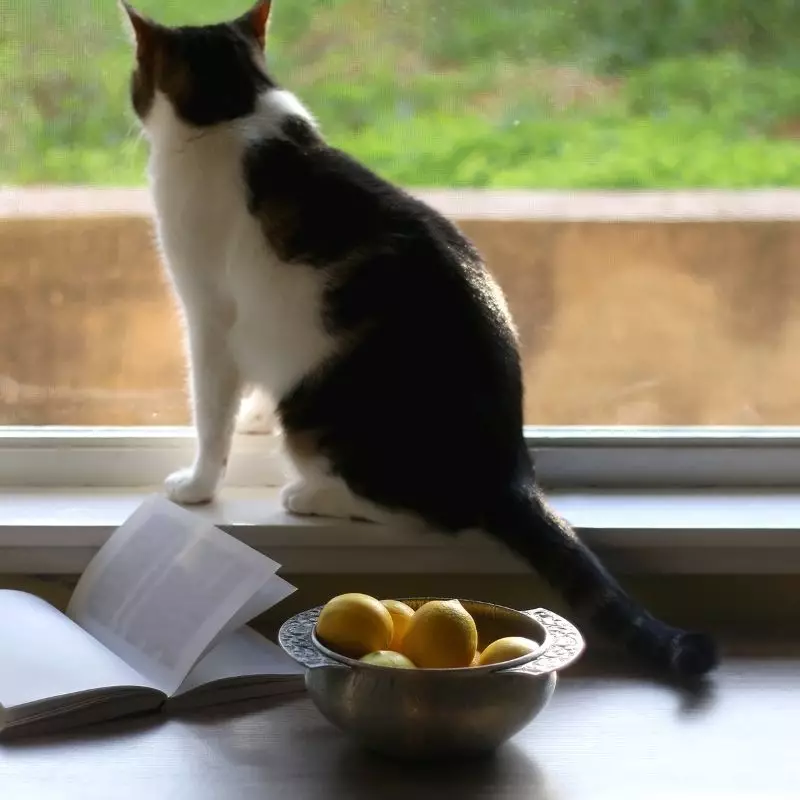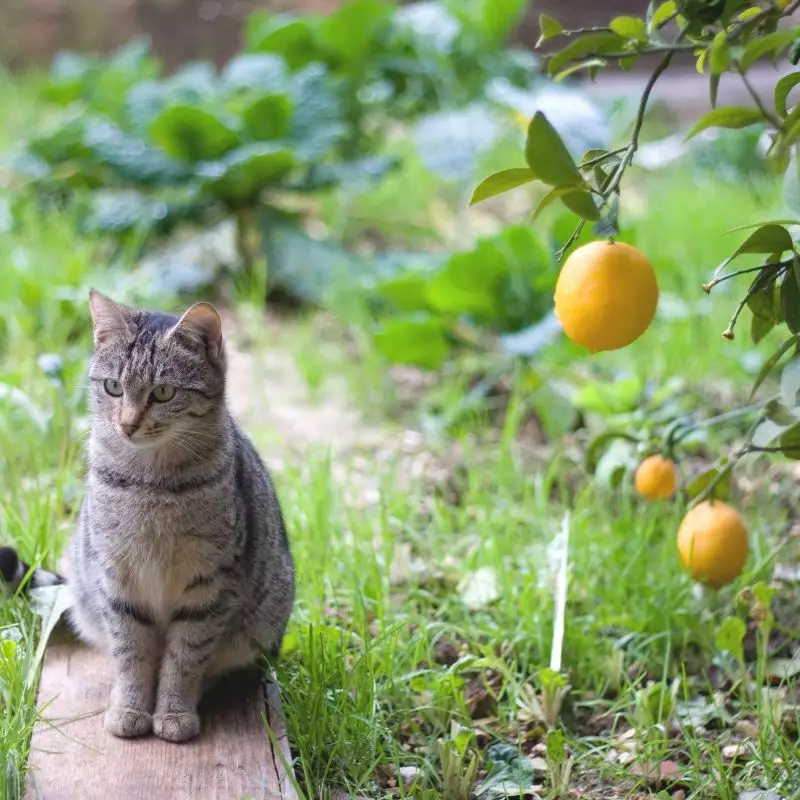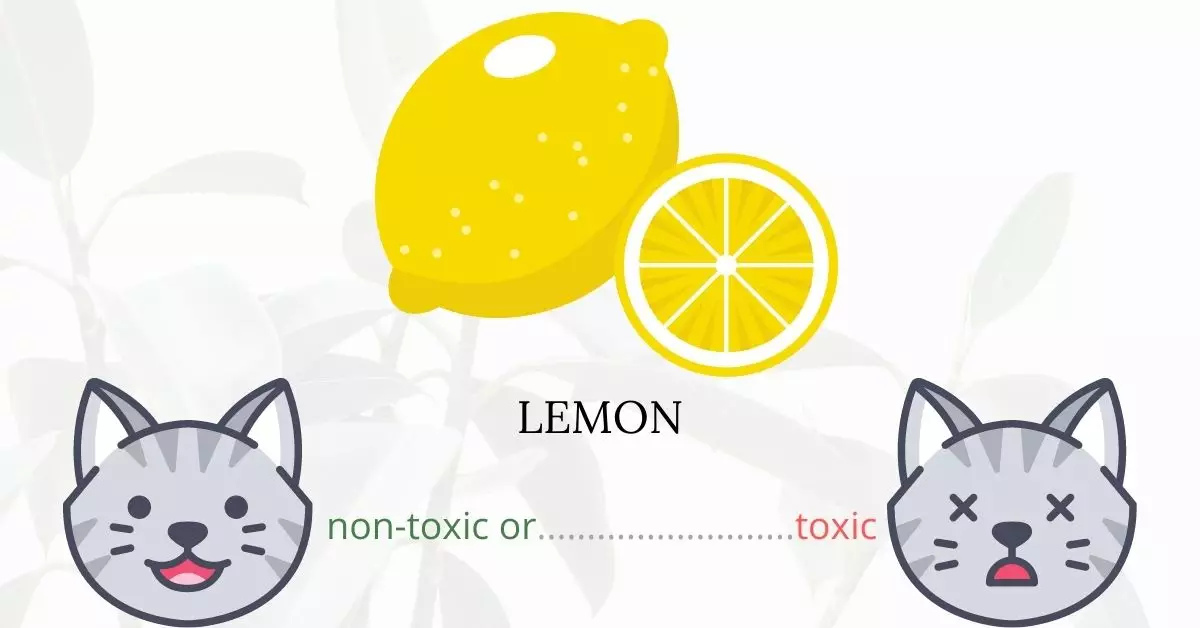Lemons, a common fruit known for their rich vitamin and mineral content, are indeed toxic to cats. Key compounds in lemons, such as limonene, linalool, and psoralen, pose risks to felines. Specifically, limonene, which imparts the distinctive citrus fragrance to lemons, can be found in flavorings, cosmetics, and cleaning products, all of which should be kept out of reach of cats due to potential lethal effects. Linalool, while contributing to the citrus aroma, acts as an insecticide. Additionally, while psoralen can be used to treat certain skin conditions in cats, it may lead to photosensitivity diseases when ingested.
To ensure the accuracy and reliability of this information, this article has been penned in collaboration with a team of experienced DVMs (doctors of veterinary medicine). Their expert insights provide a comprehensive understanding of the potential risks associated with various plants, focusing on lemons in this context. Furthermore, extensive research has been conducted using high-authority sources, including the ASPCA and PetMD, to guarantee the information’s validity.
Clinical Signs of Lemon Poisoning in Cats

If your cat has come into contact with, inhaled the aroma of, or ingested parts of the lemon plant, they may exhibit various clinical signs due to the toxic compounds present in the lemon. Here’s a breakdown of each symptom and its underlying cause:
- Diarrhea: Caused by the ingestion of lemon, as the cat’s digestive system tries to expel the harmful compounds.
- Excessive drooling: A common response to an unpleasant or toxic substance. The compounds in lemons can cause oral irritation, leading to increased saliva production.
- Vomiting: This is the body’s defense mechanism to rid itself of the ingested toxin.
- Potential photosensitivity: Psoralen in lemons can cause sensitivity to light, which may result in a sunburn-like reaction on exposed skin.
- Depression: Due to the discomfort and overall malaise from ingesting a toxin.
- Lethargy: A general feeling of weakness or lack of energy caused by the body’s response to the toxic substance.
- Skin irritation or rash: Direct contact with lemon or its juice can cause skin irritation in some cats, especially those with sensitive skin.
- Weakness: This can arise from the body’s efforts to combat the ingested toxins, leading to exhaustion.
- Cold limbs: Poor circulation can result from decreased blood pressure and overall body weakness.
- Liver failure: High quantities of toxic compounds can strain the liver, causing it to malfunction or fail as it struggles to process the toxins.
- Tremors: A neurological response to the toxin, indicating a severe reaction.
- Collapse: In severe cases, the overall impact on the cat’s system may lead to collapse.
- Low blood pressure: Caused by the body’s attempt to dilute the toxin, leading to decreased blood volume and pressure.
Always monitor your cat closely if you suspect any contact with lemon plants and seek veterinary care immediately if you observe any of these signs.
First Aid and Treatment of Lemon Poisoning in Cats

Plant poisoning symptoms should be treated by consulting a veterinarian. Because the cat could inhale the essential oil of a lemon into its lungs, inducing vomiting isn’t an option for lemon poisoning. Instead, your veterinarian will perform gastric lavage to eliminate as many poisons as possible from your cat’s gastrointestinal tract. Additionally, the veterinarian will prescribe activated charcoal to further keep any potentially harmful compounds out of the cat’s system.
Other supportive therapies will be administered by the veterinarian, including IV fluids to rehydrate your cat and correct any electrolyte or blood glucose abnormalities. If your cat’s tremors get too severe, he or she may need oxygen support and anti-seizure medication.
Recovery from Lemon Poisoning in Cats

If you got your cat to the vet clinic right away, you should be able to help him recover from his lemon poisoning. The poisoning effects are only temporary but you should not dismiss your cat’s poisoning. If your cat consumes any of the essential oils present in lemons, his or her recovery outlook may be bleak.
Prevention of Lemon Poisoning in Cats
Products that contain citrus scents and any of the recognized poisons should be kept out of reach of your cat. When buying cat care products or sprays to keep them away from your furniture or walls, always read the labels carefully. You should also use caution while using any portion of a lemon in your home.
If you love plants but have cats at home, check out these lists:





